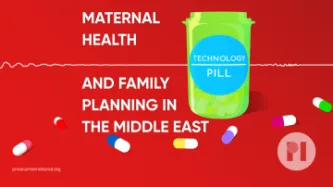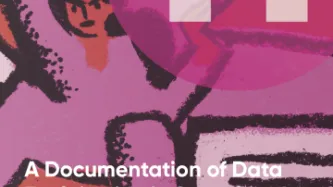Search
Content type: Advocacy
PI welcomes the opportunity to engage once again with the mandate by submitting comments, evidence, and recommendations to the UN Special Rapporteur on the right to health, Ms. Tlaleng Mofokeng. We hope that our input will contribute to the forthcoming report, “Digital innovation, technologies and the right to health”.
Technology has contributed significantly to the planning and delivery of health information, services and care. We have seen the use of data and technology across the healthcare…
Content type: Examples
Following the US Supreme Court's Dobbs decision that paved the way for states to enact legislation criminalising abortion, health advocates warn that the surveillance software schools use to algorithmically monitor students' messages and search terms could be weaponised against teens looking for reproductive health care. These systems can automatically alert school administrators, parents, or police when they detect "dangerous behaviour", which may include anything from imminent suicide…
Content type: Video
Nour El Arnaout is a division manager at the Global Health Insitute at the American University of Beirut, where she also co-ordinates the Institutes's E-Sahha programme focussed on e-health and digital health. She has more than 7 years experience in projects and programmes management, operational management and research, and leads the implementation of large scale field based projects in underserved communities in Lebanon including refugee settlements. She is working on a project called: The…
Content type: News & Analysis
The relationship between privacy and access to abortion care
In 1973, in the state of Texas, it was a criminal offence to “procure or attempt” an abortion except if the purpose was “saving the life of the mother.” This law was enacted in 1854 by the Texas state legislature, and was part of a wave of provisions criminalising access to abortion care that was gaining ground across the U.S in the mid-1800s. It is worth highlighting that these laws were being passed at a time when women in the U.S…
Content type: Long Read
In the wake of the recent news of the US Supreme Court’s decision to overturn the ruling of Roe v Wade in its ruling in Dobbs v Jackson Women's Health Organization, headlines have been dominated by conversations around privacy and fears of how the criminalisation of abortion care and surveillance by law enforcement will play out in a tech driven world.This discussion is increasingly important as governments move towards digitising their healthcare systems and as more individuals choose to…
Content type: Long Read
This piece is a part of a collection of research that demonstrates how data-intensive systems that are built to deliver reproductive and maternal healthcare are not adequately prioritising equality and privacy.
Digital health apps of all kinds are being used by people to better understand their bodies, their fertility, and to access health information. But there are concerns that the information people both knowingly and unknowing provide to the app, which can be very personal health…
Content type: Long Read
This piece is a part of a collection of research that demonstrates how data-intensive systems that are built to deliver reproductive and maternal healthcare are not adequately prioritising equality and privacy.
What are they?
Short Message Services (SMS) are being used in mobile health (MHealth) initiatives which aim to deliver crucial information to expecting and new mothers. These initiatives are being implemented in developing countries experiencing a large percentage of maternal and…
Content type: Long Read
In 2019, we exposed the practices of five menstruation apps that were sharing your most intimate data with Facebook and other third parties. We were pleased to see that upon the publication of our research some of them decided to change their practices. But we always knew the road to effective openness, transparency, informed consent and data minimisation would be a long one when it comes to apps, which for the most part make profit from our menstrual cycle and even sometimes one’s desire to…
Content type: Video
Dr. Andrea Swartzendruber is the principal investigator for the Pregnancy Resource Center Evaluation at Emory University's Center for Reproductive Health Research in the Southeast. She is an assistant professor in the Department of Epidemiology and Biostatistics at the University of Georgia College of Public Health and an adjunct professor at Emory University Rollins School of Public Health. She has recently published and presented research findings on pregnancy resource centers (also known…
Content type: News & Analysis
Abortion without privacy guarantees is not safe abortion.
Safe access to abortion is far from guaranteed throughout the world. And in many countries, there are groups working hard to make sure that safe access to this vital component of reproductive healthcare remains out of reach.
Online platforms are the new arena of anti-reproductive advocacy, and those opposed to reproductive rights are increasingly deploying digital, data-exploitative strategies. By using and developing digital…
Content type: Advocacy
Privacy International responded to a call for submissions of the Working Group on Discrimination Against Women and Girls on the sexual and reproductive health and rights of women and girls in situations of crisis.
This submission builds on PI’s research highlighting the ways in which data exploitative technologies can obstruct the realisation of sexual and reproductive rights, and research carried out by our partners on the specific manifestations of these obstacles in multiple countries of…
Content type: Video
Find out more here: https://privacyinternational.org/long-read/3669/documentation-data-exploitation-sexual-and-reproductive-rights
You can listen and subscribe to the podcast where ever you normally find your podcasts:
Spotify
Apple podcasts
Google podcasts
Castbox
Overcast
Pocket Casts
Peertube
Youtube
Stitcher
And more...
Content type: Advocacy
Privacy International and Hiperderecho made a joint submission to the UN Committee on the Elimination of all Forms of Discrimination Against Women (CEDAW) ahead of the Committee finalising the list of issues for the examination of Peru.
The submission builds on research commissioned by Privacy International and carried out by Hiperderecho on the state of reproductive rights in Peru, and how their exercise intersects with privacy and tech.
The submission is available in…
Content type: Video
This podcast is part of a special series from PI's Reproductive Rights and Privacy Project.
The series comes out on the last Monday of every month.
You can listen and subscribe to the podcast where ever you normally find your podcasts:
Spotify
Apple podcasts
Google podcasts
Castbox
Overcast
Pocket Casts
Peertube
Youtube
Stitcher
and more...
Content type: Long Read
1. What are the barriers to access safe and legal abortion care?
Abortion is considered a crime in Brazil, except in cases of pregnancy resulting from rape, when it puts the woman's life at risk or, most recently, in cases of fetal anencephaly. Article 273 of the Penal Code also forbids the sale or distribution of medication that is not registered at Anvisa (National Health Agency), which is the case for abortion pills in Brazil. Misoprostol, the active substance of abortive medicines in the…
Content type: Long Read
1. What are the barriers to access safe and legal abortion care?
The Indian state’s approach to reproductive rights historically has focused on population control rather than enhancing individual autonomy and removing structural barriers to reproductive health services, which is reflected in the barriers to provision of services. As a consequence of the early adoption of family planning and population control measures in the 1950s, India was one of the first countries to legislate on abortion…
Content type: Long Read
This research was commissioned as part of Privacy International’s global research into data exploitative technologies used to curtail women’s access to reproductive rights. Reproductive Rights and Privacy Project. Read about Privacy International’s Reproductive Rights and Privacy Project here and our research findings here.
1. What are the barriers to access safe and legal abortion care?
In Kenya, access to abortion care is restricted by the Constitution, which provides that: “…
Content type: Long Read
This research was commissioned as part of Privacy International’s global research into data exploitative technologies used to curtail women’s access to reproductive rights.
Read about Privacy International’s Reproductive Rights and Privacy Project here and our research findings here.
1. What are the barriers to access safe and legal abortion care?
Even though abortion is legal in certain cases in Argentina, different types of barriers restrict the access to legal abortions, contribute…
Content type: Long Read
This research was produced by Paz Peña as part of Privacy International’s global research into data exploitative technologies used to curtail women’s access to reproductive rights. Reproductive Rights and Privacy Project. Read about Privacy International’s Reproductive Rights and Privacy Project here and our research findings here.
1. What are the barriers to access safe and legal abortion?
According to figures from the Ministry of Health, more than 33 thousand clandestine abortions are…
Content type: Long Read
This research was commissioned as part of Privacy International’s global research into data exploitative technologies used to curtail women’s access to reproductive rights.
Read about Privacy International’s Reproductive Rights and Privacy Project here and our research findings here.
1. What are the barriers to access safe and legal abortion care?
Legal barriers
To identify the barriers experienced by women to access safe and legal abortion care, we have to understand the legal picture…
Content type: Long Read
This research was commissioned as part of Privacy International’s global research into data exploitative technologies used to curtail women’s access to reproductive rights. Reproductive Rights and Privacy Project. Read about Privacy International’s Reproductive Rights and Privacy Project here and our research findings here.
Content type: Press release
PI's new report documents 10 tactics that are being developed and deployed to delay or curtail access to reproductive healthcare globally. Especially given the current crisis, as digital services become even more important, we hope this report will highlight how those opposed to reproductive rights are actively developing technical tools to delay or curtail access. A downloadable multi-media asset is attached.
Examples of tech being developed:
Developing digital dossiers about those…
Content type: Long Read
The organised opposition to sexual and reproductive rights has gone digital. Data exploitative tech is being developed that is capable of obtaining vast amounts of intimate information about people’s reproductive health, and delaying or curtailing access to reproductive healthcare.
Technology provides incredible opportunities to democratise access to reproductive health information, services, and care. It can play a vital role in protecting the lives of those needing sexual and reproductive…
Content type: Video
PI's Reproductive Rights and Privacy Project speaks with Nandini Archer from the 50/50 Project at Open Democracy about how Heartbeat International is coordinating and promoting misleading health information globally information through it’s international affiliates.
More here: https://privacyinternational.org/taxonomy/term/677
Content type: Video
PI's Reproductive Rights and Privacy Project speaks with Dr. Subasri Narasimhan and Dr. Dabney Evans from the Rollins School of Public Health at Emory University in the US about their paper which documents how misleading health information about reproductive health can flow into policy and legislative debates.
More here: https://privacyinternational.org/taxonomy/term/677
A narrative analysis of anti-abortion testimony and legislative debate related to Georgia’s fetal “heartbeat”…
Content type: Video
PI's Reproductive Rights and Privacy Project speaks with Ruth Taylor, the CEO of the UK-based charity Abortion Support Network about how opposition groups are using misinformation to delay people from accessing safe abortion care.
More here: https://privacyinternational.org/taxonomy/term/677
Content type: Video
PI's Reproductive Rights and Privacy Project speaks with Tasneem Mewa and Ambika Tandon from the Center for Internet and Society about data exploitation in reproductive rights in India.
This podcast is part of a special series from PI's Reproductive Rights and Privacy Project.
The series comes out on the last Monday of every month.
You can listen and subscribe to the podcast where ever you normally find your podcasts:
Spotify
Apple podcasts
Google podcasts
Castbox
Overcast
Pocket…
Content type: News & Analysis
This week International Health Day was marked amidst a global pandemic which has impacted every region in the world. And it gives us a chance to reflect on how tech companies, governments, and international agencies are responding to Covid-19 through the use of data and tech.
All of them have been announcing measures to help contain or respond to the spread of the virus; but too many allow for unprecedented levels of data exploitation with unclear benefits, and raising so many red flags…
Content type: Case Study
The right to privacy is one of the precedents used to establish reproductive rights. Laws and policies which impede upon individuals’ rights to access sexual and reproductive health services may also interfere with individuals’ right to privacy and to make autonomous decisions as it pertains to their health and fertility, meaning the two are linked. Reproductive rights are necessary for bodily autonomy.
Reproductive rights have, more recently, been put at risk by one of the most concerning…
Content type: Long Read
This piece was written by Aayush Rathi and Ambika Tandon, who are policy officers at the Centre for Internet and Society (CIS) in India. The piece was originally published on the website Economic Policy Weekly India here.
In order to bring out certain conceptual and procedural problems with health monitoring in the Indian context, this article posits health monitoring as surveillance and not merely as a “data problem.” Casting a critical feminist lens, the historicity of surveillance practices…



















